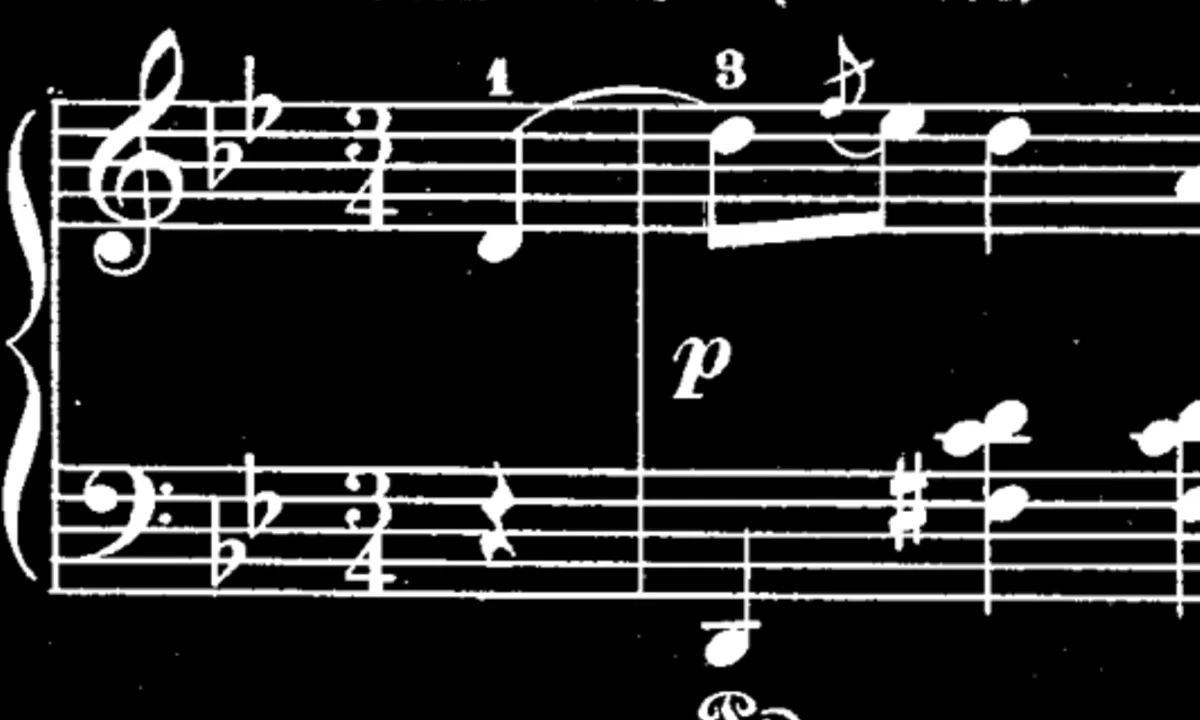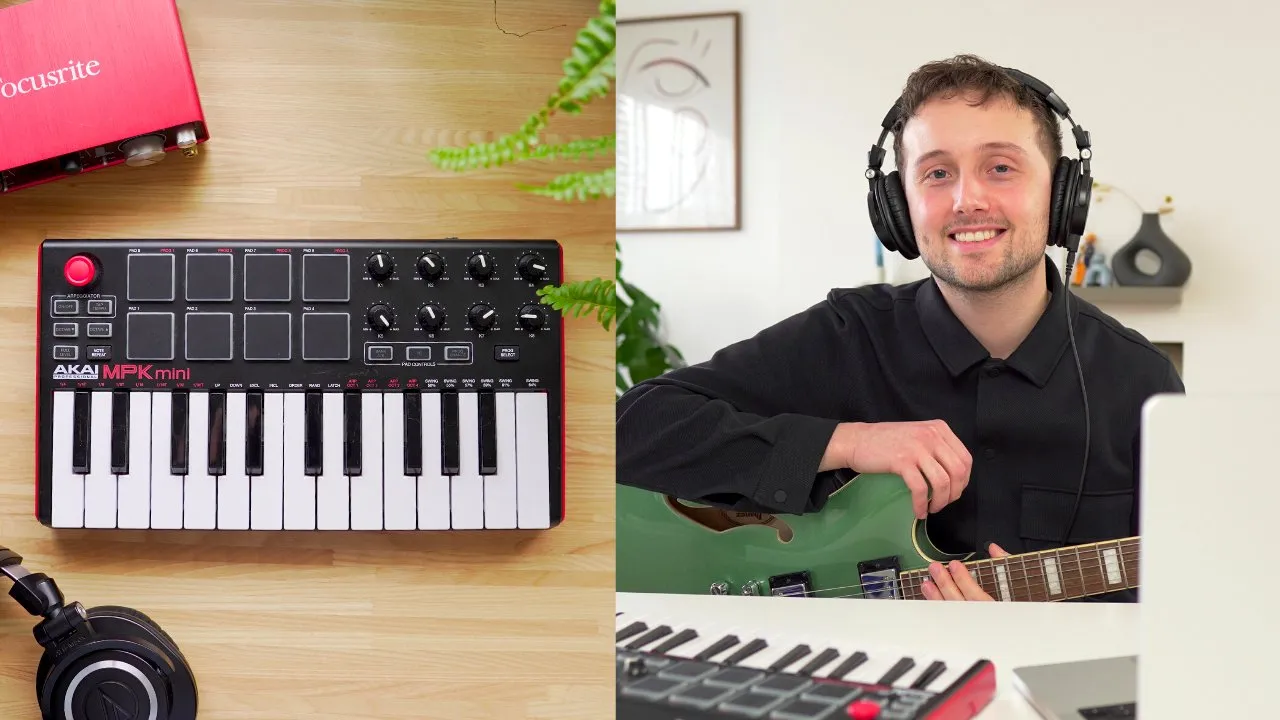
Getting Started With Music Theory 
This course provides a comprehensive overview of the fundamentals of music theory for those with limited or no prior knowledge. Topics include pitch, rhythm, meter, notation, scales, keys, key signatures, meter signatures, triads, seventh chords, and basic harmony. Perfect for those who want to learn more about how music is organized and notated. ▼
ADVERTISEMENT
Course Feature
![]() Cost:
Cost:
Free
![]() Provider:
Provider:
Coursera
![]() Certificate:
Certificate:
Paid Certification
![]() Language:
Language:
English
![]() Start Date:
Start Date:
17th Jul, 2023
Course Overview
❗The content presented here is sourced directly from Coursera platform. For comprehensive course details, including enrollment information, simply click on the 'Go to class' link on our website.
Updated in [March 06th, 2023]
Course Overview:
This course is an introduction to the fundamentals of music theory for those with little or no prior experience. It covers topics such as pitch, rhythm, meter, notation, scales, keys, key signatures, meter signatures, triads, seventh chords, and basic harmony. By the end of the course, you should have a good understanding of major and minor keys, how to read and write in treble and bass clef using standard meters and rhythmic values, and how to notate and harmonize a simple melody. Your instructor is Bruce Taggart, Associate Professor of Music Theory at Michigan State University.
Possible Development Directions:
This course serves as a great starting point for those interested in learning more about music theory. After completing this course, you can move on to more advanced theory and composition courses. You can also explore different genres of music and learn more about the history and development of music theory.
Related Learning Suggestions:
In addition to taking courses, there are many other ways to learn music theory. You can read books, watch tutorials, and listen to lectures. You can also practice by playing music and experimenting with different sounds and chords. Finally, you can join a music theory group or take private lessons to get personalized feedback and guidance.
[Applications]
Upon completion of this course, students can apply their knowledge of music theory to further their understanding of music. They can use their newfound knowledge to analyze and compose music, as well as to better understand the structure of music. Additionally, students can use their knowledge to better understand the music of different genres and cultures.
[Career Paths]
1. Music Theory Teacher: Music theory teachers are responsible for teaching students the fundamentals of music theory, such as pitch, rhythm, meter, notation, scales, keys, key signatures, meter signatures, triads, and seventh chords. They also help students understand how music is organized and notated. This job is becoming increasingly popular as more people are interested in learning music theory.
2. Music Composer: Music composers create original music for a variety of purposes, such as film, television, video games, and live performances. They must have a strong understanding of music theory in order to create music that is both creative and technically sound. As technology advances, the demand for music composers is expected to increase.
3. Music Producer: Music producers are responsible for overseeing the production of music recordings. They must have a strong understanding of music theory in order to create the desired sound. Music producers must also be able to work with a variety of musicians and audio engineers to create the best possible product.
4. Music Arranger: Music arrangers are responsible for taking existing music and rearranging it for a variety of purposes, such as for a live performance or a recording. They must have a strong understanding of music theory in order to create arrangements that are both creative and technically sound. As technology advances, the demand for music arrangers is expected to increase.
[Education Paths]
1. Bachelor of Music: A Bachelor of Music degree is a four-year program that provides students with a comprehensive understanding of music theory, composition, performance, and music history. Students will learn the fundamentals of music theory, including pitch, rhythm, meter, notation, scales, keys, key signatures, meter signatures, triads, and seventh chords. They will also gain an understanding of music history, composition, and performance. This degree is ideal for those who want to pursue a career in music, such as a composer, performer, or music educator.
2. Master of Music: A Master of Music degree is a two-year program that provides students with an advanced understanding of music theory, composition, performance, and music history. Students will build on the fundamentals of music theory, including pitch, rhythm, meter, notation, scales, keys, key signatures, meter signatures, triads, and seventh chords. They will also gain an in-depth understanding of music history, composition, and performance. This degree is ideal for those who want to pursue a career in music, such as a composer, performer, or music educator.
3. Doctor of Musical Arts: A Doctor of Musical Arts degree is a three-year program that provides students with an advanced understanding of music theory, composition, performance, and music history. Students will build on the fundamentals of music theory, including pitch, rhythm, meter, notation, scales, keys, key signatures, meter signatures, triads, and seventh chords. They will also gain an in-depth understanding of music history, composition, and performance. This degree is ideal for those who want to pursue a career in music, such as a composer, performer, or music educator.
4. Music Technology: Music technology is a rapidly growing field that combines music theory, composition, performance, and music history with the latest digital technologies. Students will learn the fundamentals of music theory, including pitch, rhythm, meter, notation, scales, keys, key signatures, meter signatures, triads, and seventh chords. They will also gain an understanding of music history, composition, and performance, as well as the latest digital technologies. This degree is ideal for those who want to pursue a career in music technology, such as a sound engineer, music producer, or music software developer.
Course Provider

Provider Coursera's Stats at AZClass
Discussion and Reviews
0.0 (Based on 0 reviews)
Explore Similar Online Courses

Google Sheets for Beginners & Excel Users Who Need Sheets

Workflow in ServiceNow

Python for Informatics: Exploring Information

Social Network Analysis

Introduction to Systematic Review and Meta-Analysis

The Analytics Edge

DCO042 - Python For Informatics

Causal Diagrams: Draw Your Assumptions Before Your Conclusions

Whole genome sequencing of bacterial genomes - tools and applications

Orchestral Music Composition & Music Theory for Video Games

Music Theory for Songwriters: From Beginner to Producer

Music Theory Level 1: Part Five
 Related Categories
Related Categories
 Popular Providers
Popular Providers
 Popular Searches
Popular Searches
Quiz
 Submitted Sucessfully
Submitted Sucessfully
1. What is the goal of this course?
2. Who is the instructor of this course?
3. What college is the instructor from?
4. What is the instructor's name?


Start your review of Getting Started With Music Theory